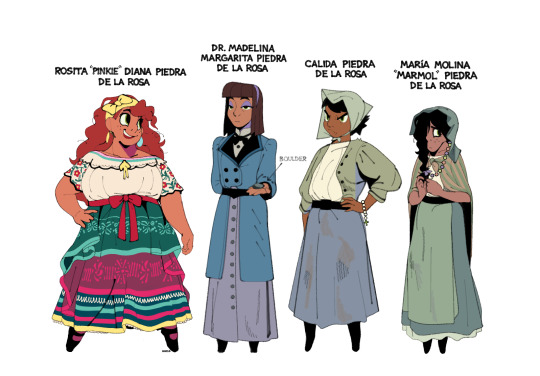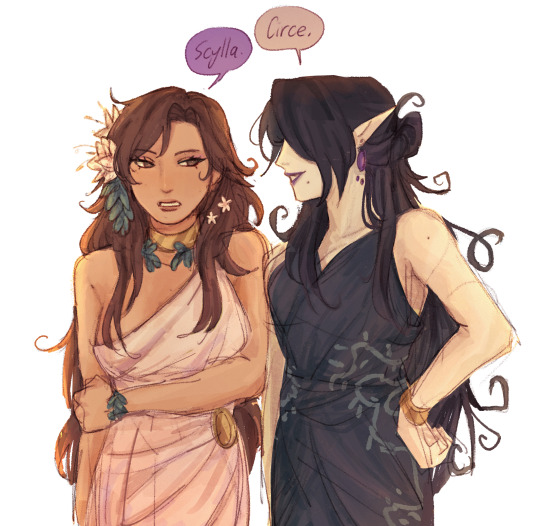#not naming it for a reason
Explore tagged Tumblr posts
Text





cool leg activities
#College Roommates au#Asriel and Papyrus#Deltarune#deltarune art#headcanon#papyrus with terrible eyesight canon trust#Comic#undertale#undertale comic#Papyrus#asriel#help them good lord#Papyrus first and last time he ever gets to drive#Until he gets his glasses#If he ever does#I don’t actually know if there’s a name for this au thing#The real reason why Papyrus hasn’t appeared in Deltarune /j
9K notes
·
View notes
Text

i honestly still think about this post daily
#im watching young justice rn and every time someone says his name i involuntarily go IS THERE A LORE REASON-#dc#batman#r/batmanarkham#batman arkham#arkhamverse#dick grayson#nightwing#reddit
20K notes
·
View notes
Text
satoru hated his last name. hated it like a stone in his shoe—always there, always rubbing raw. gojo felt less like a name and more like a warning label. it wasn’t his, not really. it belonged to history books and clan heads and a bloodline that never once asked if he wanted any of it. being gojo meant being untouchable, invincible, alone. he grew up thinking of it like a muzzle. like shackles. like a script he never got to rewrite.
and then he married you.
and suddenly you're laughing, calling yourself mrs. gojo like it’s the most casual, normal thing in the world. no fear, no hesitation, just soft affection wrapped around something that once made his chest tighten. you sign it on forms, whisper it into the phone when making reservations, scrawl it on love notes you slip into his coat pocket before missions. like it's yours. like it's yours and his, not just a dynasty or a curse.
and he can’t take it. he can’t fucking take it.
you wear his name like a promise. like a shared secret. like you want it. like you want him. and satoru—satoru, the man, the boy beneath the title—he doesn't know what to do with that. he's unraveling. imploding. your voice saying his name makes him dizzy, because you don’t say it like the world does. you say it like it’s precious. like it’s soft. like it means something good.
and it’s so stupid, right? that a name he once loathed now makes his chest ache with something too big for words? all because of you? all because you made it beautiful?
he used to resent it. now he wants to carve it into the sky just so everyone knows you chose it. chose him. chose forever.
maybe the name was never the problem. maybe it just hadn’t belonged to the right person yet.
but now it does.
and now it sounds like home.
#satoru not gojo#i refuse to group him with those people#you’re the only reason he doesn’t hate the name anymore#you gave him his name back#and he gave it to you to keep#stop calling him gojo like he’s your favorite special grade pokemon#his name is satoru. say it with me. sa. to. ru.#yes i’m dramatic but also correct#gojo satoru#gojo x reader#gojo satoru x reader#gojo satoru x y/n#gojo satoru x you#gojo fluff#gojo x reader fluff#gojo angst#gojo x reader angst#gojo drabbles#౨ৎ — gojossip
5K notes
·
View notes
Text
Thinking about how in Gideon's narration she employs 206 anatomical names for bones but Harrow doesn't know the difference between a hilt and a pommel. Something something cavaliers being expected to respect/understand/integrate into necromancy while necromancers are not expected to do the same for caveliership. Is this anything.
#ik that idea is supported in the text plenty elsewhere but i was just thinking about language#someone (tiktok book reader) was complaining about gtn using 'too many big words'#and 1) i dont particularly remember any big words being used? at least nothing that i had to look up.#2) the big words that are used (anatomical names for bones) are important to the text and the character.#they help establish the world and gideons place in it.#its not like muir is just stuffing her prose with 'big' words for no good reason. shes very intentional with her writing.#this is not really a dig at anyone who thought there were big words in gtn (is that the general consensus?) it just got me thinking.#tlt#gtn#htn#the locked tomb
3K notes
·
View notes
Text


He did eventually sign it
#sonic movie universe#stobotnik#doctor ivo robotnik#agent stone#initially i wanted the marriage one to happen with movie 3 ivo#but then i remember the government erased all evidence of him and therefore he legally doesn't exist and can't get married#which i guess means that they also had to discover they were married and erase that too?#or i guess maybe they didn't realize and the only evidence of ivo Robotnik left is a marriage certificate only stone knows about#anyway this concept is unhinged for a number of reasons and that makes it very funny to me#first stone just. signing whatever the hell the doctor wants without checking what it is#you just know he signed dome heinous shit. body modification was probably included somewhere#then robotnik trying to trick him into marriage! why??#well i assure there's not a romantic thought in his head while doing it#he just thinks stone is his and that it should be official#but he also knows what it looks like so he didn't want stone to find out#also the fact that he doesn't even know the guy he's trying to marry'#real name like... okay#the fact that stone is not bothered by it and he in fact redid the certification so it would be official#THE FACT THAT THIS IMPLIES EVERYTHING ELSE HE SIGNED IS NOT LEGALLY BINDING BECAUSE HIS NAME WAS WRONG#you get it i think it's funny
5K notes
·
View notes
Text


I love this book to death, so here's some things I noticed <3
#hyde being short is quite possibly my favourite thing ever#this isnt me jabbing at the takes that stray from the book#just btw XD#i think thats a big reason why i love it so much is that theres a WEALTH of inspiration that can be taken from the jekyll and hyde trope#theres so much out there i love#that being said#ive been buzzing about jekyll n Hyde recently because of this game that blindsided me with a jekyll n hyde trope#its always fun seeing it out in the wild#as seldom as that is LMAO#if anyones curious though its called vampire therapist and its a character named dr drayne#very cute and very fun game 💕💕#jekyll and hyde#the strange case of dr jekyll and mr hyde#dr jekyll#mr Hyde#also talking about blindsided by gothic lit blorbos#saw an animated Jekyll and hyde movie at the DOLLARSTORE for 5 smackaroos#easiest 5bucks i ever spent#literally the funniest shiy ive ever seen highly recommend watching it pals#its also on youtube for free and its in that so bad its good category for me
5K notes
·
View notes
Text
A Guide to Historically Accurate Regency-Era Names

I recently received a message from a historical romance writer asking if I knew any good resources for finding historically accurate Regency-era names for their characters.
Not knowing any off the top of my head, I dug around online a bit and found there really isn’t much out there. The vast majority of search results were Buzzfeed-style listicles which range from accurate-adjacent to really, really, really bad.
I did find a few blog posts with fairly decent name lists, but noticed that even these have very little indication as to each name’s relative popularity as those statistical breakdowns really don't exist.
I began writing up a response with this information, but then I (being a research addict who was currently snowed in after a blizzard) thought hey - if there aren’t any good resources out there why not make one myself?
As I lacked any compiled data to work from, I had to do my own data wrangling on this project. Due to this fact, I limited the scope to what I thought would be the most useful for writers who focus on this era, namely - people of a marriageable age living in the wealthiest areas of London.
So with this in mind - I went through period records and compiled the names of 25,000 couples who were married in the City of Westminster (which includes Mayfair, St. James and Hyde Park) between 1804 to 1821.
So let’s see what all that data tells us…
To begin - I think it’s hard for us in the modern world with our wide and varied abundance of first names to conceive of just how POPULAR popular names of the past were.
If you were to take a modern sample of 25-year-old (born in 1998) American women, the most common name would be Emily with 1.35% of the total population. If you were to add the next four most popular names (Hannah, Samantha, Sarah and Ashley) these top five names would bring you to 5.5% of the total population. (source: Social Security Administration)
If you were to do the same survey in Regency London - the most common name would be Mary with 19.2% of the population. Add the next four most popular names (Elizabeth, Ann, Sarah and Jane) and with just 5 names you would have covered 62% of all women.
To hit 62% of the population in the modern survey it would take the top 400 names.
The top five Regency men’s names (John, William, Thomas, James and George) have nearly identical statistics as the women’s names.
I struggled for the better part of a week with how to present my findings, as a big list in alphabetical order really fails to get across the popularity factor and also isn’t the most tumblr-compatible format. And then my YouTube homepage recommended a random video of someone ranking all the books they’d read last year - and so I present…
The Regency Name Popularity Tier List
The Tiers
S+ - 10% of the population or greater. There is no modern equivalent to this level of popularity. 52% of the population had one of these 7 names.
S - 2-10%. There is still no modern equivalent to this level of popularity. Names in this percentage range in the past have included Mary and William in the 1880s and Jennifer in the late 1970s (topped out at 4%).
A - 1-2%. The top five modern names usually fall in this range. Kids with these names would probably include their last initial in class to avoid confusion. (1998 examples: Emily, Sarah, Ashley, Michael, Christopher, Brandon.)
B - .3-1%. Very common names. Would fall in the top 50 modern names. You would most likely know at least 1 person with these names. (1998 examples: Jessica, Megan, Allison, Justin, Ryan, Eric)
C - .17-.3%. Common names. Would fall in the modern top 100. You would probably know someone with these names, or at least know of them. (1998 examples: Chloe, Grace, Vanessa, Sean, Spencer, Seth)
D - .06-.17%. Less common names. In the modern top 250. You may not personally know someone with these names, but you’re aware of them. (1998 examples: Faith, Cassidy, Summer, Griffin, Dustin, Colby)
E - .02-.06%. Uncommon names. You’re aware these are names, but they are not common. Unusual enough they may be remarked upon. (1998 examples: Calista, Skye, Precious, Fabian, Justice, Lorenzo)
F - .01-.02%. Rare names. You may have heard of these names, but you probably don’t know anyone with one. Extremely unusual, and would likely be remarked upon. (1998 examples: Emerald, Lourdes, Serenity, Dario, Tavian, Adonis)
G - Very rare names. There are only a handful of people with these names in the entire country. You’ve never met anyone with this name.
H - Virtually non-existent. Names that theoretically could have existed in the Regency period (their original source pre-dates the early 19th century) but I found fewer than five (and often no) period examples of them being used in Regency England. (Example names taken from romance novels and online Regency name lists.)
Just to once again reinforce how POPULAR popular names were before we get to the tier lists - statistically, in a ballroom of 100 people in Regency London: 80 would have names from tiers S+/S. An additional 15 people would have names from tiers A/B and C. 4 of the remaining 5 would have names from D/E. Only one would have a name from below tier E.
Women's Names
S+ Mary, Elizabeth, Ann, Sarah
S - Jane, Mary Ann+, Hannah, Susannah, Margaret, Catherine, Martha, Charlotte, Maria
A - Frances, Harriet, Sophia, Eleanor, Rebecca
B - Alice, Amelia, Bridget~, Caroline, Eliza, Esther, Isabella, Louisa, Lucy, Lydia, Phoebe, Rachel, Susan
C - Ellen, Fanny*, Grace, Henrietta, Hester, Jemima, Matilda, Priscilla
D - Abigail, Agnes, Amy, Augusta, Barbara, Betsy*, Betty*, Cecilia, Christiana, Clarissa, Deborah, Diana, Dinah, Dorothy, Emily, Emma, Georgiana, Helen, Janet^, Joanna, Johanna, Judith, Julia, Kezia, Kitty*, Letitia, Nancy*, Ruth, Winifred>
E - Arabella, Celia, Charity, Clara, Cordelia, Dorcas, Eve, Georgina, Honor, Honora, Jennet^, Jessie*^, Joan, Joyce, Juliana, Juliet, Lavinia, Leah, Margery, Marian, Marianne, Marie, Mercy, Miriam, Naomi, Patience, Penelope, Philadelphia, Phillis, Prudence, Rhoda, Rosanna, Rose, Rosetta, Rosina, Sabina, Selina, Sylvia, Theodosia, Theresa
F - (selected) Alicia, Bethia, Euphemia, Frederica, Helena, Leonora, Mariana, Millicent, Mirah, Olivia, Philippa, Rosamund, Sybella, Tabitha, Temperance, Theophila, Thomasin, Tryphena, Ursula, Virtue, Wilhelmina
G - (selected) Adelaide, Alethia, Angelina, Cassandra, Cherry, Constance, Delilah, Dorinda, Drusilla, Eva, Happy, Jessica, Josephine, Laura, Minerva, Octavia, Parthenia, Theodora, Violet, Zipporah
H - Alberta, Alexandra, Amber, Ashley, Calliope, Calpurnia, Chloe, Cressida, Cynthia, Daisy, Daphne, Elaine, Eloise, Estella, Lilian, Lilias, Francesca, Gabriella, Genevieve, Gwendoline, Hermione, Hyacinth, Inez, Iris, Kathleen, Madeline, Maude, Melody, Portia, Seabright, Seraphina, Sienna, Verity
Men's Names
S+ John, William, Thomas
S - James, George, Joseph, Richard, Robert, Charles, Henry, Edward, Samuel
A - Benjamin, (Mother’s/Grandmother’s maiden name used as first name)#
B - Alexander^, Andrew, Daniel, David>, Edmund, Francis, Frederick, Isaac, Matthew, Michael, Patrick~, Peter, Philip, Stephen, Timothy
C - Abraham, Anthony, Christopher, Hugh>, Jeremiah, Jonathan, Nathaniel, Walter
D - Adam, Arthur, Bartholomew, Cornelius, Dennis, Evan>, Jacob, Job, Josiah, Joshua, Lawrence, Lewis, Luke, Mark, Martin, Moses, Nicholas, Owen>, Paul, Ralph, Simon
E - Aaron, Alfred, Allen, Ambrose, Amos, Archibald, Augustin, Augustus, Barnard, Barney, Bernard, Bryan, Caleb, Christian, Clement, Colin, Duncan^, Ebenezer, Edwin, Emanuel, Felix, Gabriel, Gerard, Gilbert, Giles, Griffith, Harry*, Herbert, Humphrey, Israel, Jabez, Jesse, Joel, Jonas, Lancelot, Matthias, Maurice, Miles, Oliver, Rees, Reuben, Roger, Rowland, Solomon, Theophilus, Valentine, Zachariah
F - (selected) Abel, Barnabus, Benedict, Connor, Elijah, Ernest, Gideon, Godfrey, Gregory, Hector, Horace, Horatio, Isaiah, Jasper, Levi, Marmaduke, Noah, Percival, Shadrach, Vincent
G - (selected) Albion, Darius, Christmas, Cleophas, Enoch, Ethelbert, Gavin, Griffin, Hercules, Hugo, Innocent, Justin, Maximilian, Methuselah, Peregrine, Phineas, Roland, Sebastian, Sylvester, Theodore, Titus, Zephaniah
H - Albinus, Americus, Cassian, Dominic, Eric, Milo, Rollo, Trevor, Tristan, Waldo, Xavier
# Men were sometimes given a family surname (most often their mother's or grandmother's maiden name) as their first name - the most famous example of this being Fitzwilliam Darcy. If you were to combine all surname-based first names as a single 'name' this is where the practice would rank.
*Rank as a given name, not a nickname
+If you count Mary Ann as a separate name from Mary - Mary would remain in S+ even without the Mary Anns included
~Primarily used by people of Irish descent
^Primarily used by people of Scottish descent
>Primarily used by people of Welsh descent
I was going to continue on and write about why Regency-era first names were so uniform, discuss historically accurate surnames, nicknames, and include a little guide to finding 'unique' names that are still historically accurate - but this post is already very, very long, so that will have to wait for a later date.
If anyone has any questions/comments/clarifications in the meantime feel free to message me.
Methodology notes: All data is from marriage records covering six parishes in the City of Westminster between 1804 and 1821. The total sample size was 50,950 individuals.
I chose marriage records rather than births/baptisms as I wanted to focus on individuals who were adults during the Regency era rather than newborns. I think many people make the mistake when researching historical names by using baby name data for the year their story takes place rather than 20 to 30 years prior, and I wanted to avoid that. If you are writing a story that takes place in 1930 you don’t want to research the top names for 1930, you need to be looking at 1910 or earlier if you are naming adult characters.
I combined (for my own sanity) names that are pronounced identically but have minor spelling differences: i.e. the data for Catherine also includes Catharines and Katherines, Susannah includes Susannas, Phoebe includes Phebes, etc.
The compound 'Mother's/Grandmother's maiden name used as first name' designation is an educated guesstimate based on what I recognized as known surnames, as I do not hate myself enough to go through 25,000+ individuals and confirm their mother's maiden names. So if the tally includes any individuals who just happened to be named Fitzroy/Hastings/Townsend/etc. because their parents liked the sound of it and not due to any familial relations - my bad.
I did a small comparative survey of 5,000 individuals in several rural communities in Rutland and Staffordshire (chosen because they had the cleanest data I could find and I was lazy) to see if there were any significant differences between urban and rural naming practices and found the results to be very similar. The most noticeable difference I observed was that the S+ tier names were even MORE popular in rural areas than in London. In Rutland between 1810 and 1820 Elizabeths comprised 21.4% of all brides vs. 15.3% in the London survey. All other S+ names also saw increases of between 1% and 6%. I also observed that the rural communities I surveyed saw a small, but noticeable and fairly consistent, increase in the use of names with Biblical origins.
Sources of the records I used for my survey:
Ancestry.com. England & Wales Marriages, 1538-1988 [database on-line].
Ancestry.com. Westminster, London, England, Church of England Marriages and Banns, 1754-1935 [database on-line].
#history#regency#1800s#1810s#names#london#writing resources#regency romance#jane austen#bridgerton#bridgerton would be an exponentially better show if daphne's name was dorcas#behold - the reason i haven't posted in three weeks
13K notes
·
View notes
Text
conrad and mrs flood nervously presenting the first draft of the wish world to the rani and she just sits in silence for the whole powerpoint and then takes a long sip of brandy and is like add dinosaurs.
#featuring such slides as 'kate stewart in a beige suit [IMPORTANT!!!!!!]' and 'bone palace (working title)'#i just really love that there was no reason for the dinosaurs at all#just a little treat for her#personally if i was trapped in a malfunctioning tardis with the master and a t rex i would be less fond of dinos but what do i know#doctor who#doctor who spoilers#the rani#mrs flood#i dont remember that guys last name & i dont care to#panjabi!rani
2K notes
·
View notes
Text
more mallerui shenanigans, Gargoyle Studies Club edition! +more outfits cuz theyre relaxing to do lol



#i copied the name of the club from the wiki but in my brain its always 'gargoyles appreciation club' for some reason#dont mind me too much....... im just being a simp here........#also trying to feed the malleus brainrot as much as possible before starting the week again and working on comms ₍ᐢ. ̫.ᐢ₎#no but the semi chibis designs are actually so relaxing to do im going to design the birthday outfits next#my bday is in a few weeks so it aligns perfectly for a twst themed celebration ☆⌒(ゝ。∂)#rui draw smth#twisted wonderland#twst#twst fanart#twst oc#malleus draconia#malleyuu
2K notes
·
View notes
Text

We're going on an ass kicking adventure.
[First] Prev <–-> Next
#poorly drawn mdzs#mdzs#wei wuxian#lan wangji#Yes indeed this is a reference to the classic 'Kirby's fucking pissed' meme. It felt fitting given the circumstances.#Wei Wuxian is nothing but a villain now. His name is but a booeyman and scapegoat for everything that goes wrong.#It is a cruel and unusual punishment to be Irrepairable to others. That no matter what you do - you are othered and unsalvageable.#While this situation deals with necromancy & war & politics...boy does it ever mirror how modern drama campaigns go.#I wonder if MXTX did that on purpose? Considering how SVSSS talks about the relationships between authors and their fans/work -#Its stands to reason that WWX story is indeed a parallel for how the public prefers black and white & sensationalist views of people.#People are heroes or villains and trying to think about the nuance is too much work.#And it does not matter what the truth or lies are. The rumour exists and so it must hold truth.#It feels like someone dropped a poorly researched callout post on WWX on twitter that went viral.#80% of the people don't even know who he is but are still leaving him death threats.#“Guys I know we all used to really love WWX's content but I heard he unethically sourced his bones for his last art installation...”#Okay actually he might indeed do unethical bone sourcing. I need to think longer on what the hyper-specific hobby drama might be.#And a huge shout out to LWJ who is right in the vicinity watching this happen in horror. *That* is a specially kind of torment too.
2K notes
·
View notes
Text

The Piedra sisters.
Born and raised in a small mining town in New Mexico. Calida and María Molina have stayed behind to support their parents while Rosita and Madelina have gone off to pursue their dreams. Madelina recently obtained her Ph.D. in geology from Las Cruces College. Rosita works as a baking apprentice and entertainer in Ponyville, Nebraska. Madelina is the eldest, Calida the middle child, and Rosita and María Molina (non-identical) twins.
#mlp#pinkie pie#maud pie#limestone pie#marble pie#my art#fanart#character designs#the grand galloping 20s#ty to everyone who helped with their names#hopefully the puns in their names work#some quick design notes: i wanted all the sisters to wear a dress/skirt; belt; and some sort of hairband that informs their#personality. so pinkie has bows all over. maud has a buttoned skirt and very basic hairband. limestone and marble wear bonnets#their bonnets are also meant to mirror the shape of their wacky hair in the show#they all sorta stand on their tippy toes too#no reason why#also gave pinkie and marble the same eye shape freckles and curly hair to show they're still twins
7K notes
·
View notes
Text

legend has it that the young witch circe and the once beautiful nymph scylla shared a complicated past...
#art#cirscylla#that's the ship name i like for them best anyway#circe#scylla#greek mythology#welcome to my greek mythos yuri#DOOMED YURI#circylla#epic the musical#do i even tag it as that? i think i should cuz epic is the reason im so into greek mythos#jorge said we might get a spinoff about their backstory and im insane over that#i know it's probably going to be about how circe loved that one guy but still a girl can dream#this is them but younger! before circe turns scylla into the horrific man-eating monster that even poseiden fears#there's just so much potential here#consider a younger and much warier circe landing on the island for the first time after being outcasted by her family for her magic#and she meets scylla there who back then is a much happier and playful person#enemies to lovers to enemies again#i don't know if they ever make it to lovers or if they were only an almost#they're about to have the worst breakup in greek history#im rambling in tags MY BAD
4K notes
·
View notes
Text




eos pt. 1
#I LITERALLY PUT THE APPLE BACK AND HE STILL WENT AFTER MY ASS WTF#i lost my stamina band bc of that and ive been trying to find another one ever since GOD DAMN IT#i wasnt expecting to get an egg either. are we parents now??? what do we do with a 9 month old toddler????????#i already knew a bit abt this game from my pokeask days so i know not to trust dusknoir but i dont actually know why#i just know that he probably does know me for some reason and that hes probably leaving smth out abt grovyle#chatot makes me think of the kind of manager who stresses self care days and has phone numbers for mental health#services in his email signature and then makes me work overtime anyway. human (pokemon?) resources chatot#i dont do much with the extra team members either. i have a sandshrew named Dune whos been on for the longest time#but im really picky abt who i recruit. i wanna recruit a dratini for sure though theyre one of my favorites#ummmmm im on chapter 11 rn and i love all of my guild mates and mugging random pokemon in dungeons#my art#myart#doodles#pokemon mystery dungeon#pmd#marmalade#neptune#pokemon#pokemon oc#eos
1K notes
·
View notes
Text

Do you think their bff necklaces are magnetic and sometimes connect without them noticing
#theyyyy make me illlll#sick to my stomach#(slaps fabian like a car) this bad boy can fit sm fondness in him#their friendship is everything to me#qpr fabriz#if thats your cup of tea#You can barely see the green marks on fabians neck….#but theyre there… it means he wears the cheap necklace a lot…..#inspired by a fic I forgot the name if and cannot find for the life of me#it was one where fabian lost something and riz tries to find it for him#only to learn that the reason fabian was so frantic was because he lost the friendship necklace#very sweet fic#EDIT:#@zephyranemone THANK YOUUU#found me the fic#the case of the misplaced material possession by anonymous#dimension 20 fantasy high#d20 fantasy high#fantasy high#fantasy high fanart#riz gukgak#fabian aramais seacaster#fabian seacaster#my art#repost bc for some reason this was flagged as mature#????
1K notes
·
View notes
Text


So it’s canonically implied that Modern au Dragon is a coffee shop chain owner, rides motorcycles and loves his son 😌
#sources: trust me#jk it’s from op gakuen chp 22#the cafe chain is named vertigo instead of baltigo for some reason#cant wait for dragon to make his debut in op gakuen#one piece#one piece fanart#monkey d. luffy#one piece luffy#mugiwara no luffy#monkey d dragon#dragon one piece#vinsmoke sanji#one piece sanji#op nami#cat burglar nami#one piece nami
3K notes
·
View notes
Text

I WATCHED DEADPOOL & WOLVERINE THE OTHER DAY AND IT FUCKS HARDDD
#wolverine#artists on tumblr#fanart#digital art#deadpool#deadpool and wolverine#hugh jackman#HES GOT JACK IN HIS NAME FOR A REASON#marvel#logan howlett#marvel mcu#mcu#poolverine#wade wilson#x men#logan#artxrascu
6K notes
·
View notes